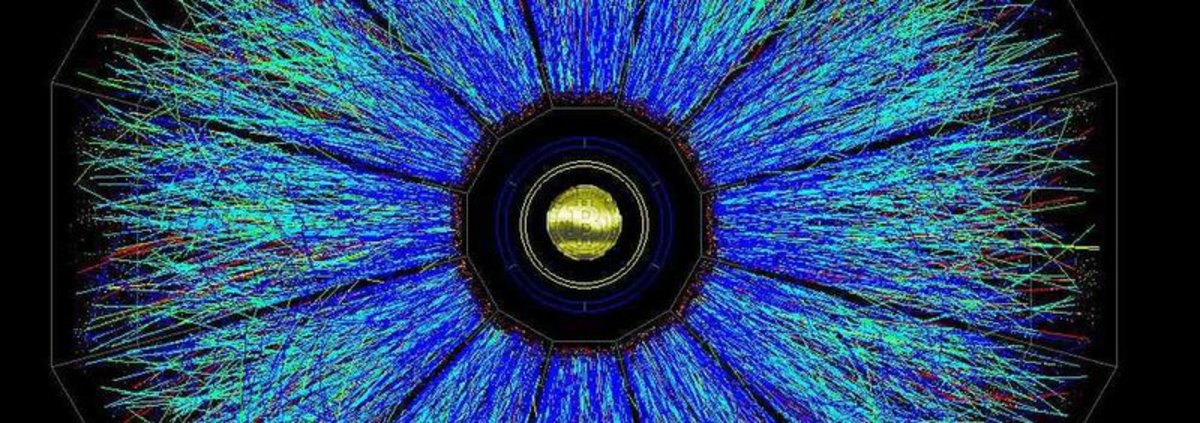
Forbes magazine ran an article on August 24, “Why There Should be a Bitcoin Central Bank.” If you want the short answer and want to skip the rest of the article, it boils down to this: because that would violate every core bitcoin principle. This article shows the ignorance of most of the world that is deep into yesterday’s paradigm of money. This article is intended to establish four founding core principles of bitcoin technology that should act as the signal for “true north” from which banks, nations, and most importantly, the people of the world will eventually recognize. As people value the many aspects of bitcoin differently it is important to understand the roots of creation that are responsible for the fruits the world is beginning to recognize.
JP Morgan plans its own version of bitcoin but refuses to comment on their work which is supposed to compete globally with the “Web Cash” idea that sounds a lot like bitcoin. Yet their work violates one of the founding principles of bitcoin and digital currencies created in its image. (This article will refer to all alternative type digital currencies as “bitcoin” for the simplicity of reading.) With recent financial restrictions on Russia, their own work is being pushed ahead of schedule for their own version of the same technology. But they too have missed key foundational principles and will only represent a hollow shell disguising itself as the real thing. The CEO of JPMorgan, Jamie Dimon himself, was attacking bitcoin even in January while at the same time his bank was trying (and failing 175 times) to patent the already open-source technology.
It’s one thing for a bank to create its own payment system borrowing from some of bitcoin technology, but what about entire countries? Would this be more reasonable and trustworthy? In recent news, Ecuador is trying to create its own version of a digital currency while banning the use of bitcoin. Once again, this shows ignorance of the principles that created bitcoin and is shaking up the world.
Principles and values defined
Principles are the bedrock, “natural laws” that form the core root of something. The are scientifically proven and basic instate. Performing basic mathematics is having the principles of mathematics down. You must know mathematics before you can understand algebra and calculus. They act as the “true north” for our compass to give direction and reference point. We aren’t born with the ability to write – this is a principle that you must learn to read before you can write. It doesn’t make a difference if people value algebra or the ability to write more than basic math and reading skills. The core principles of each discipline will enforce these natural laws to happen in sequence regardless.
The following principles are covered in this article:
1. Neutral
2. Open
3. Trustless
4. Decentralized
Bitcoin’s core principles
1. Neutral
Political regimes have proven to be temporary. If they are overthrown, or invaded and disposed of, their currency goes with them. Bitcoin transcends politics and nations. Nations enjoy the power of creating and maintaining their monopoly on their own currency but rampant corruption in the governments renders them untrusted by trading partner nations. Even the US dollar as once respected as the reserve currency of the world is making many countries uneasy with its debt spending. The US, International Bank, and The World Bank could benefit by holding countries such as Argentina responsible to paying their international debts. Bitcoin can be loaned with transparently to help end corruption.
Nations have also recently used money as a cold war weapon. They can invoke measures that make it painful or illegal to conduct foreign business and larger nations can exert enough pressure to send other countries into hyperinflation or a depression. One age-old warfare strategy was to counterfeit the currency of the rival country and flood their markets and cause massive devaluation for non-gold currencies. Gold protected against this as it’s impossible to replicate. Now counterfeiting has gone high tech as routine reports indicate hackers are attacking foreign banks. But like gold…rising above all the muck and strategy and warfare…bitcoin may rise above the fray. It may one day provide shelter with its intrinsically valued properties but have several features that make it better than gold.
On the wrong side of the principle of neutrality, Ecuador has recently announced a ban on bitcoin and other neutral digital currencies. It also announced that it will create its own version of digital money. Although it might easy commerce and banking with some of its population, this will likely fail in the long run because it doesn’t adhere to the principle of being neutral. Convincing other countries to trade using their new proprietary currency may not be any easier than what they have today. Neutrality of the world-accepted digital currency might eventually compensate for bad monetary policy reputation. They’ve admitted that they intend to use it as a easier means of collecting taxes from their underbanked to try and meet enormous debt levels. Meet the new boss, same as the old boss. They may be repeating the mistakes of Canada’s “Mintchip” digital coin they since gave up. They too did not understand these core principles.
2. Open
The bitcoin code is open source. Anybody can view it and with a few programming classes can work to understand it. Non-open currency might not be any more trustful than the printed version which might be created into infinity with no proof otherwise. Given the choice of using a banned neutral world-wide currency or a state-enforced national currency which is not open to review might end up like Canada’s version. See how well they accept other national currencies across any border today (Barring the US reserve currency). Just ask Argentina. Or try to pay for you order on Overstock.com in Mexican Pesos. As it is written in programming language one might need to be versed in the skills of computer programming to understand it – but there are enough around the world who are able and who have to verify it does what it is programmed to do. It works like a series of complicated math programs. But it is all based on math, logic, and probability. You can’t hide secret back doors or operations in the open source code and get away with it. Literally anybody in the world can add code to the bitcoin program but having it peer reviewed and accepted by the world and the core development team is an entirely different matter. Openness enforces honesty. Hidden agendas, or any code that even smells of non-neutrality will be called out immediately as some of the best programmers in the world write it, test it and continue to improve on it. They are already suspicious of everybody and everything presented as a new idea as you can verify on their online forums.
Every change made to the bitcoin code is reviewed and tested among peers around the world for the good of all people and nations. It benefits from the bitcoin processing software being run world-wide network of computers using consensus of majority to enforce democracy of money. Some worry about if the inventor of bitcoin is a mysterious person clouded in secrecy and unknown motives. To this – the community agrees…”So what?” The program is open and edited, over 70 of bitcoin has been rewritten and streamlined. It’s math. It’s only as secret as any math equation viewable by all. With it’s openness the best of the best hackers have tried to crack it, and they’ve failed. It’s likely impossible to create ‘back doors’ to software that is open source programs.
In contrast to the principle of openness – the examples given above for JP Morgan and Ecuador give context to this point by both failing to meet this principle. They both have proprietary “closed” programs that are not submitted for review by the public. This erodes trust when compared to bitcoin. They were created to only benefit the organization that is producing them. It would appear that only customers served by JP Morgan could use their new payment system based on bitcoin-like technology, but they would have to compete with the nationless and open code that can be used by anybody in the world (legal restrictions notwithstanding). JP Morgan seems to value the ability to avoid fraud associated with credit cards and the enormous savings potential, but it misses the boat for the principle of openness. When it eventually competes with the open source and trusted bitcoin open system, what would be the compelling reason to switch from a universally accepted and open system? Without the fundamental principle of openness the natural result would be less trust and limited acceptance. JP Morgan appears to not align their values with the principle of openness.
Ecuador made the mistake of disallowing bitcoin at the same time it announced its own version. This could isolate them from commerce with the rest of the world. The m-pesa model of digital money is now opening up to bitcoin with one in three Kenyans now owning a bitcoin wallet. It appears that Ecuador hasn’t been paying attention to transformation of m-pesa. Bitcoin might one day make m-pesa irrelevant itself as Kenya continues to set the pace in Africa for pulling itself out of poverty. Ecuador seems destined to repeat their same currency problems with a fresh coat of whitewash dressed covering up the point that its a shallow digital currency model missing the principles discussed in this article.
3. Trustless
Bitcoin requires no third party to validate the transaction or the parties involved with the transaction. A native principle feature of the blockchain does this. It requires absolutely no trust in the person you are conducting business with because the record of the bitcoin required to complete the transaction is already available for inspection and verification. In this way it acts as non-counterfeit cash. One must only trust the blockchain, which is verified by the most powerful single purposed networked computer in history.
An important feature of bitcoin is that it is not tied to an asset like gold. As history has proven, the keepers of gold cannot always be trusted. This situation of backing a digital currency creates a breakdown in trust that is different from history how? . . . as one must trust the person who says they have the gold. They may try to convince you with their own private ledger. And less informed public will fall for it. The word ‘bitcoin’ might one day be as effective as “DOT COM” leading a rush of unwise investment from people jumping on a bandwagon led by unprincipled people lacking the ability to maintain its customers bitcoin funds in a customer control wallet.
Mt. Gox is a good example of people new to bitcoin trying to bring their understanding of the old paradigm with them. The advantage of having your bitcoin in your own personal digital wallet was completely missed by the sorry customers who trusted Mt. Gox to hold their funds without access to their own personal wallets. When the population doesn’t understand the principle of being trustless they end up trusting the same kinds of institutions who’ve been fleecing them all along. Failing to utilize one’s own personal wallets for bitcoin safekeeping you may come to regret it. They had the ability early on to move their funds into their own private wallet for protection but lacked the principle understanding presented here. Natively bitcoin requires no trust. But yet people mistakenly give too much trust by giving up control of their funds to those who do not deserve it.
As it is today, there must be some trust for the onramps and offramps converting national currencies to digital currencies and back such as Coinbase. Government regulations are needed when it touches regular currencies which cannot benefit of the blockchain. But in the long run, the long-standing advice of: if you don’t hold it – you don’t own it might still apply. In the world of bitcoin, if you don’t have the private key to your wallet, you don’t own it. Gold is estimated that over 100 ounces of real physical gold ounce, there are contracts with people who think they are the only owner. When financial calamity happens, and it eventually will, fractional reserve lending of gold will shock many. Their perceived safety of gold is an illusion.
Trusting derivative markets, ETFs and a host of other up-and-coming bitcoin businesses are attempting to make a profit by using bitcoin in old ways and old paradigms, but this counters the advantages of the protection of the blockchain. Big Wall Street firms demonstrate the value money and are happy to take short term gains at the expense of long-term reputations. One may look at the recent history of world record breaking 13 billion in fines levied on JPMorgan regarding corruption, and decide to trust them with their own digital currency. JP Morgan will likely make it sound good with expensive advertising on MSNBC with hope you forget about their scandals.
In the case of Ecuador, they claim to back their currency with assets of the nation. Yet they currently rank 102 out of 177 countries on the corruption scale. Their ranking for budget openness is classified as “minimal”. These actions will likely raise the price of bitcoin in Ecuador significantly as the government actions may seem desperate.
4. Decentralized
Bitcoin is founded on the principle that money should not be controlled any centralized entity. It was created for the private use of people by visionary people suspicious of government after repeated contagion of bank collapses that are still teetering in danger. Using technology introduced with peer-to-peer file sharing used by bittorrent, the ability to stop file sharing and bit torrents was proving impossible. The lesson was learned about keeping information safe using decentralized models. Napster was centralized file sharing and it was shut down. Likewise, successors like Kazaa saw a similar fate. Decentralization has a potential of equalizing control of the money. A recent Forbes report indicated that only 85 people in the world control as much money as 3.5 billion people on earth. Those in power currently from the old paradigm will do what they can to corral and control the new paradigm to maintain their valued power. However the core principles of bitcoin will resist if they are utilized. Populations of collective societies might prefer centralization versus individualistic western societies.
Nation states can in theory build enough mining power to take consensus of a block chain. But that train of thought only works a short time before the geniuses that try to figure out how to stop a bitcoin freight train realize the people may just decide to revert to a previous block to fork and introduce a new algorithm that makes the previous hardware obsolete. They would be playing a billion dollar game of whack-a-mole. It is conceivable that somebody might create the hardware – but they won’t have the minds and hearts of the world consensus. The Genie is out of the bottle. The new paradigm has begun. The bitcoin protocol has already proven to be resilient. The honeybadger of money does not go quietly into that good night.
JP Morgan is centralized. It can be avoided. It can be circumvented. It has its own arbitration rules. They might make grand claims and put a lot of advertising dollars into making it sound like the best new thing – but it will be hollow. Without adhering to the core principles, it will become weak. Good advertising will only carry you so far. JP Morgan bits may be uncompetitive in places of the world the company doesn’t operate. It has to comply with heavy US regulations. Bitcoin companies may as well, but bitcoin itself will not. The blockchain is everywhere. It is beholden to no one. The US government controls JP Morgan: it can be compelled to stop.
Ecuador is one nation. Its government called for the ban on bitcoin and the creation of its own digital currency is centralized to a political structure and current administration. Its new digital “mint” can be declared closed or illegal by the next political party, or revolution by its people. It is controlled by a centralized government by those in power. With one war being lost, their currency will suffer the same fate as the losing country in all of history. This is a reason people will ‘vote’ with their dollars for a worldwide decentralized currency.
As far as the “Central Bank of Bitcoin”? The new principles will be crowdsourcing, decentralized banking functions, smart contracts, transparent wallet accounting and audits and much more that the world can hardly yet imagine. Central banks were the paradigm of the past. Under the system of central banks, Over half of the world remained unbanked or underbanked. Central banks helped the 85 richest people in the world control over half of the world’s money. Central banks centralize money and power for the top one percent of the world. The core principles value of Bitcoin’s does not by default as person to person transactions can avoid banks and their outdated models. Banks will still be needed to lend money and help to get new businesses started but the decentralization movement has begun.
So back to the beginning of this article…Why should we not have bitcoin central banks? All of the above.
There’s your long answer.










